What does a sizzling US summer mean for fall foliage? Here's a preview
Summer is scorching most of the U.S. right now, but in just a few weeks, leaves will begin their annual color change across the Last Frontier, marking the approach of a new season.
The Foliage Report recently released a preview of autumn titled the "Health of Foliage," and for large parts of the country, there are early indications it could be a decent year for spectators.
The annual fall foliage is highly contingent on location and, in many areas, starts as early as late September and peaks in either October or November. However, weather conditions during the summer and early fall can play a big role in how extravagant the sights are.
Experts said drought conditions can interrupt the leaf-changing process and lead to more muted colors.
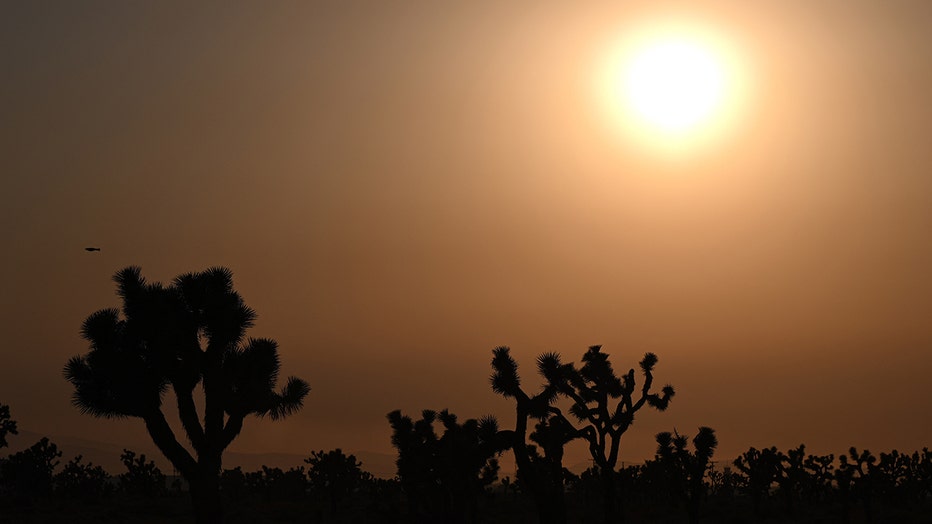
The sun sets behind Joshua Trees in Lancaster, California where temperatures reached 107 degrees Fahrenheit (41.6 degrees Celsius) today, July 12, 2021. - Wildfires were burning across more than one million acres of the western United States and Cana
The Foliage Report broke down each region’s climate and whether the classic fall foliage sights will live up to expectations.
TEMPERATURE, MOISTURE INFLUENCE THE BRILLIANCE OF FALL COLORS
Improving conditions in some regions
The Foliage Report said it is no longer concerned about a poor season in the Northeast due to recent rainfall.
The rains can promote tree health and leaf retention into the fall months.
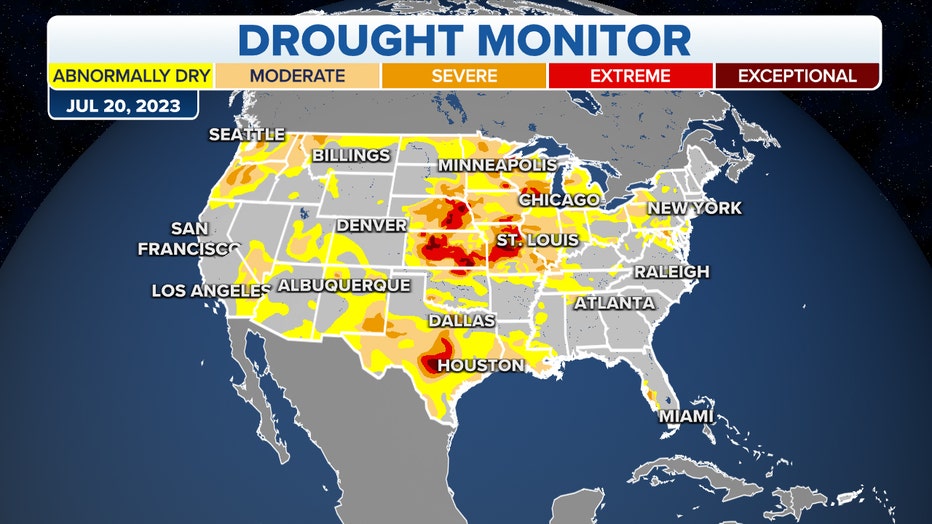
U.S. Drought Monitor(Credit: FOX Weather)
Some of the areas that could still use more rain are the Catoctin Mountain area of Pennsylvania and Maryland.
The experts said that there is still time left for decent rains to rescue the season.
Drought is a worry for many
Many communities across the Plains and the Midwest are not looking at a decent season due to continued drought.
The Foliage Report highlighted areas of Kansas, Nebraska, Iowa, Missouri, Minnesota and Wisconsin as being in an extreme drought, where there may not be enough time to turn things around.
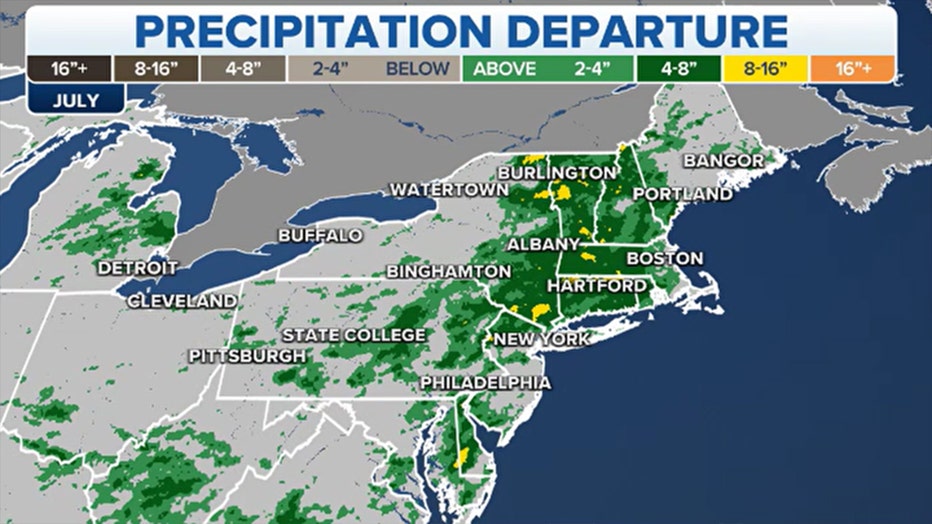
Estimated soil moisture (Credit: FOX Weather)
Parts of the area may see a "delay in fall color by weeks and the potential for the leaves turning brown and falling."
According to the latest U.S. Drought Monitor, only 15% of the Midwest and half of the Plains are not in a drought.
WHY IS THE PUMPKIN ASSOCIATED WITH FALL?
Good news for many
If you live in the Southeast, West or Alaska, the Foliage Report said you could be seeing a very healthy fall color season with just a few exceptions.
Communities in Northern Virginia, Washington and Oregon are still behind on rainfall for the year, but there remains some time to make up deficits.
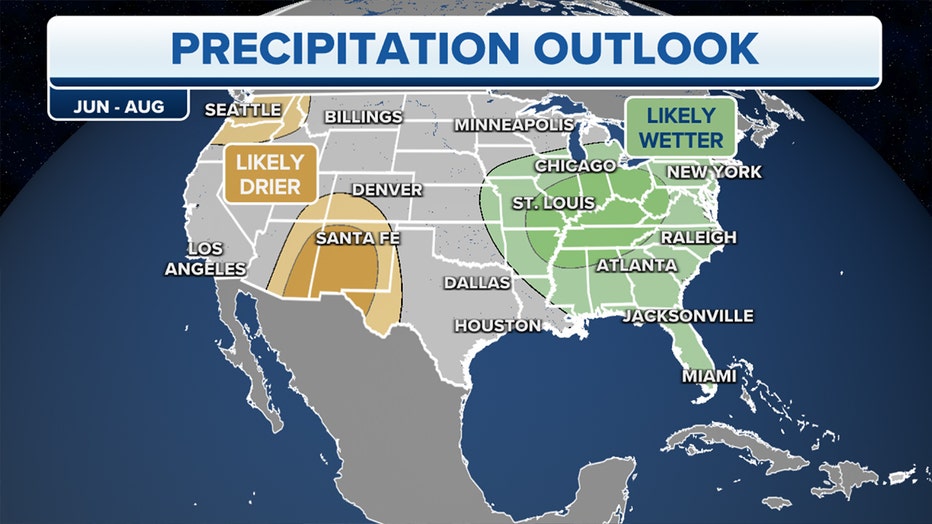
Drought outlook(Credit: FOX Weather)
The experts said due to a snowy winter and spring, many parts of the West could see impressive colors, which is a change from previous years.
Out of all the regions of the country, the group seemed most excited about Alaska, where leaves will start to change in just a few weeks.
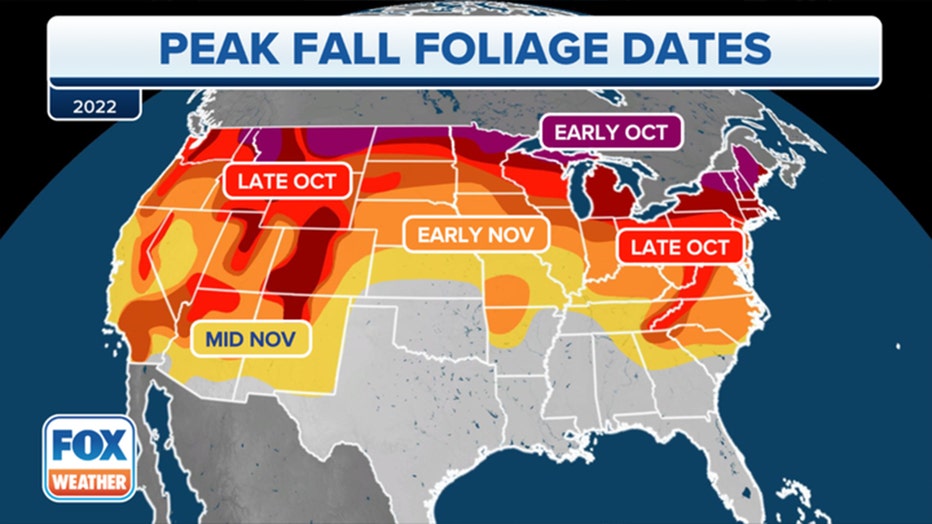
Peak of fall foliage around the country (Credit: FOX Weather)
Communities in Alaska are losing around 5 minutes of sunlight every day, which is one of the ingredients in the breakdown of chlorophyll in the leaves.
The absence of the pigment allows the green color to fade and yellows, oranges and reds to become visible.

